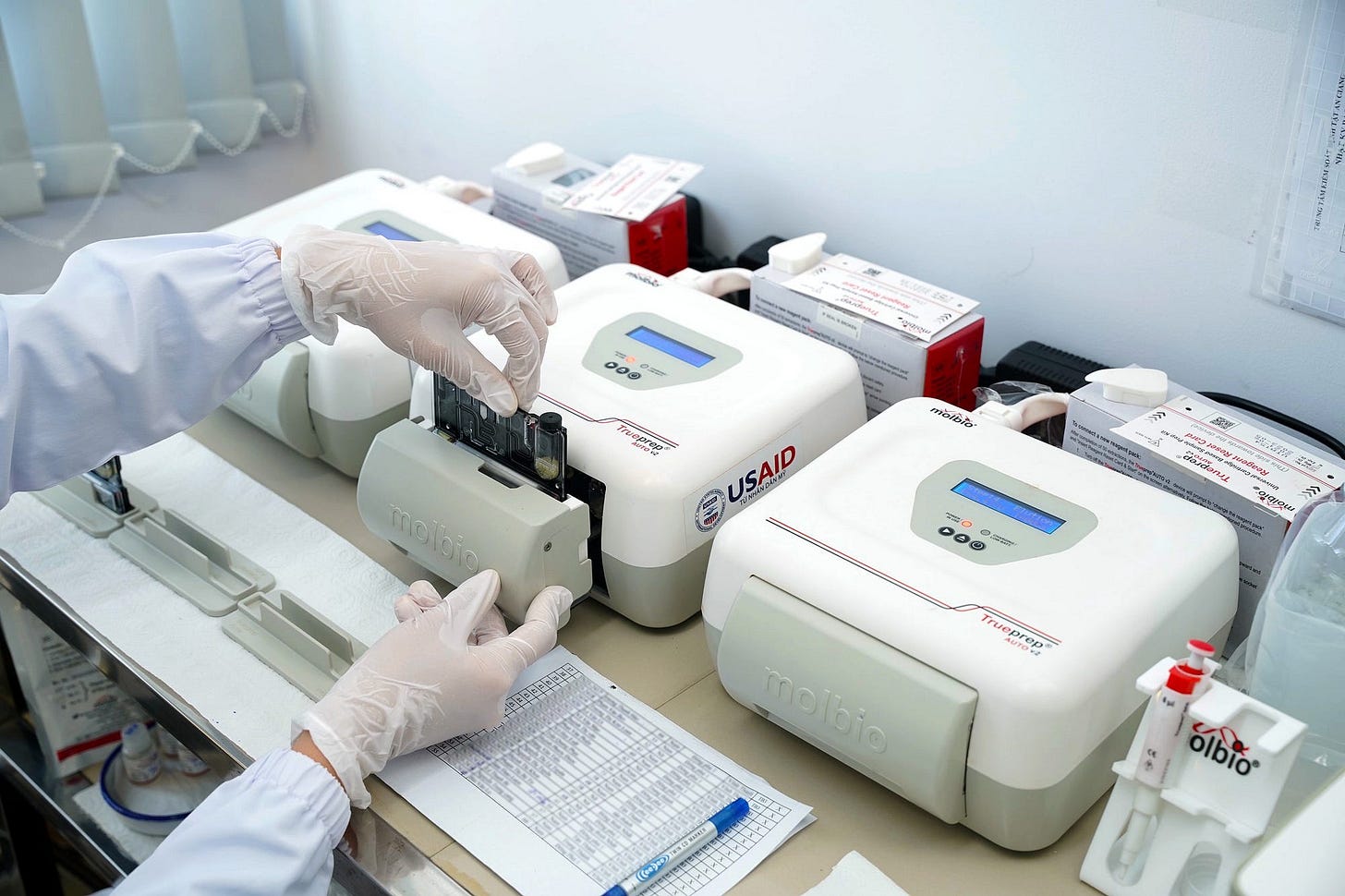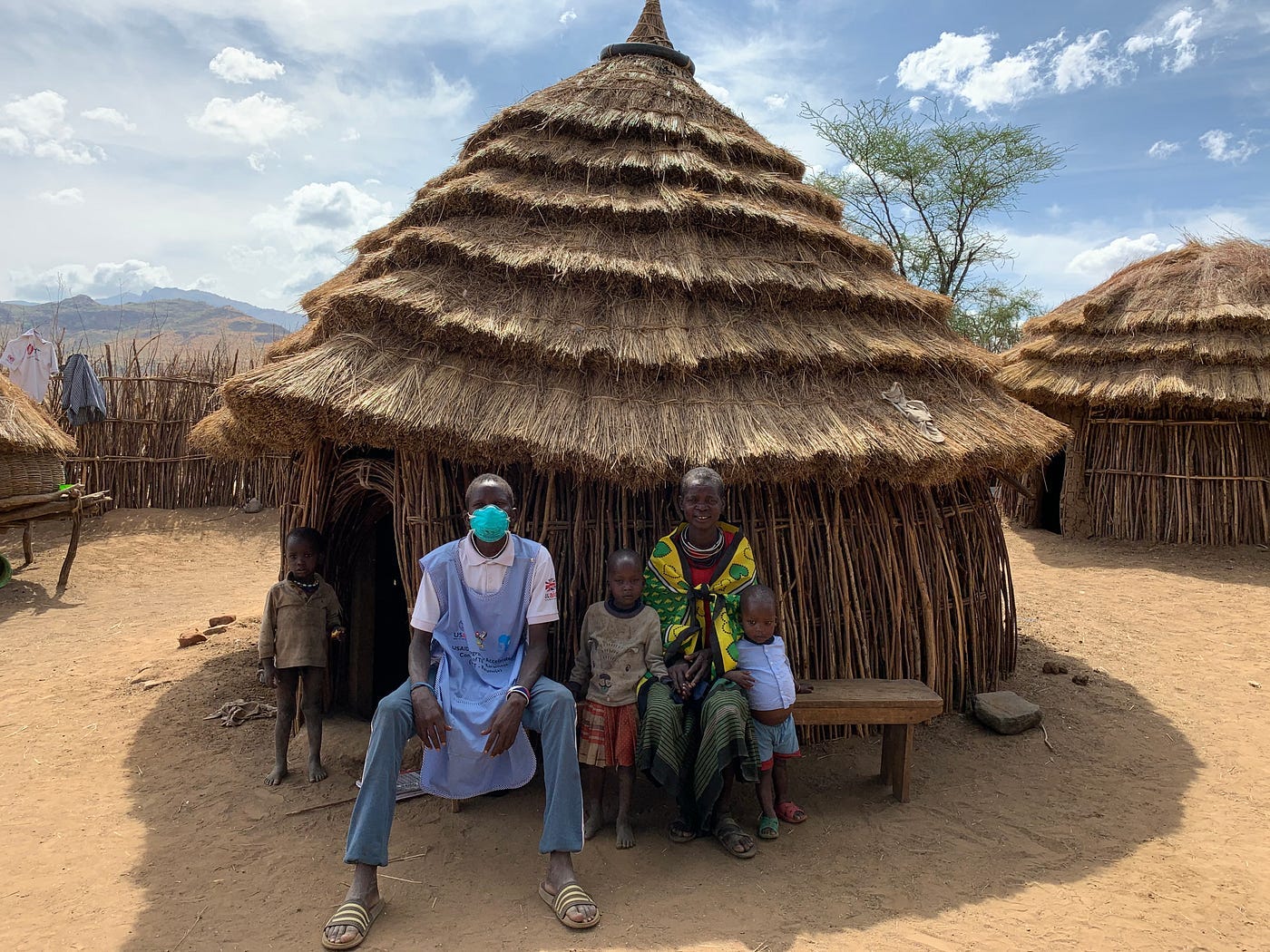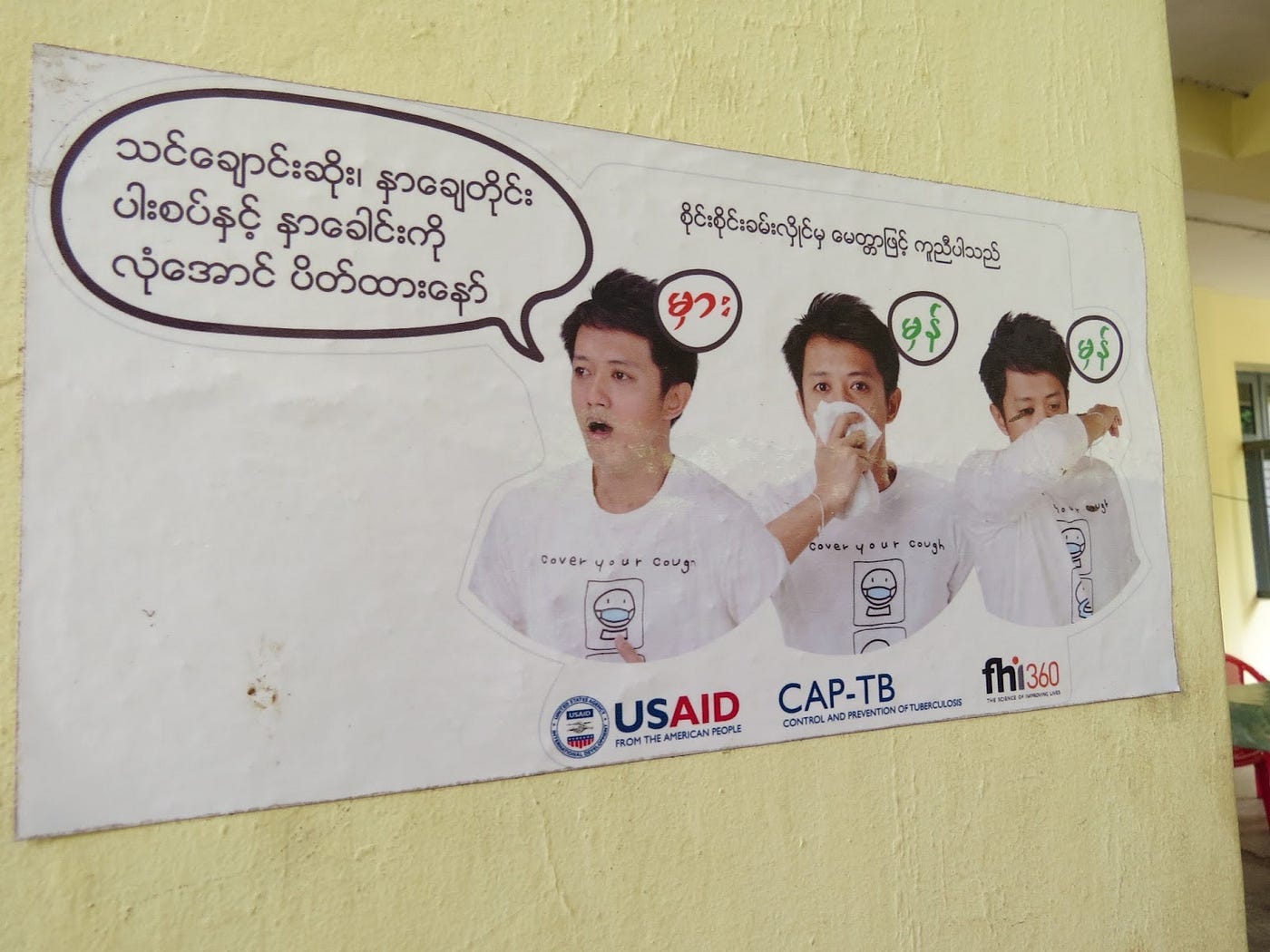USAID’s Exit Could Undo Years of Progress Fighting Tuberculosis
The U.S. once led the fight against TB. Now, its retreat could cost millions of lives—and endanger Americans at home

Today is World Tuberculosis Day. Many Americans think tuberculosis is a disease of the past, a mark of tragedy in Victorian novels. But tuberculosis isn’t gone. It’s still here—airborne, deadly, and mutating. In 2023 alone, it killed 1.25 million people and infected 10.8 million more. And just as the world needs to mount a stronger fight against TB, the United States threatens to walk away.
“TB elimination needs to be a continuous thing. We really can't afford to take time off.” —Mike Frick, TB Project co-director for the Treatment Action Group
USAID: A Lifeline for TB Patients
For decades, USAID has led the charge against TB, funding life-saving programs in more than 26 countries. Its initiatives have helped cut TB deaths nearly in half since 2000, saving over 58 million lives. USAID’s funding has delivered rapid diagnostics, breakthrough treatments, and health system support to the world’s most vulnerable communities.
Now, that lifeline risks being severed because Musk and his cronies are trying to dismantle USAID’s TB programs. In practice, this means critical drug pipelines are collapsing and essential research is stalled. Entire treatment networks, once supported by U.S. funding, are unraveling.
The result? More infections, more drug resistance, and more deaths—not just abroad, but here at home.

USAID Fights TB Around the World
Across the globe, USAID’s TB programs have saved millions of lives by targeting the hardest-hit regions with innovative, community-driven solutions. In many countries, USAID’s presence meant the difference between life and death.
In Vietnam, USAID worked with communities, government, and the private sector to introduce rapid molecular testing and mobile clinics that detect TB earlier and reduce hospital burdens. It also help strengthen local governments’ ability to track and manage cases—bringing Vietnam closer to its goal of eliminating TB for good.
In Burma (Myanmar), USAID worked alongside local health workers to bring TB treatment to those in remote and underserved areas. By training community health volunteers and expanding access to rapid diagnostic tools, USAID has helped detect and treat TB cases that might otherwise go unnoticed. These efforts have been crucial in a country where political instability has made accessing healthcare even more difficult.
In Kenya, USAID-supported initiatives have tackled TB in high-risk communities, including rural areas where health services are scarce. Programs like Healthier Manyattas have empowered local community members to serve as TB advocates, helping identify cases early and ensure patients complete their treatment.
These are just a few examples of USAID’s transformative impact. But without USAID support, life-saving programs like these are now at risk.
Why Americans Should Worry
We like to think of TB as a distant problem, but it’s making a comeback in our own backyard. While most people in the United States are at low risk of contracting TB, the U.S. saw a 15.6% spike in cases from 2022 to 2023, the biggest jump in over a decade. TB is spreading in 34 states, with outbreaks in California, Minnesota, and Kansas—the latter experiencing its worst TB crisis in history with dozens of active TB cases.
TB spreads through the air, and it doesn’t care about borders or politics. It moves silently through crowded schools, hospitals, subways, and workplaces. Drug-resistant strains are already emerging, making treatment harder and more expensive. Without continued monitoring and treatment programs abroad, the world—including the United States—is at risk of a full-scale resurgence.

“TB is airborne. You cannot stop it at the border. It’s spread through air – as long as you breathe, you will get it. And not just TB, but also drug-resistant TB and extreme drug-resistant TB. The current [funding freeze] will probably create additional strains because there are people with interrupted treatment, there are people not diagnosed.” —Dr. Lucica Ditiu, Stop TB Partnership
What Happens If We Abandon the Fight?
When TB treatment stops, the disease doesn’t just linger—it mutates. Drug-resistant TB is already on the rise, and the less we fight it, the stronger it gets. Imagine a world where TB is no longer curable. That’s the future we’re walking toward if USAID’s funding isn’t restored.
USAID doesn’t just detect and treat tuberculosis—it also funds critical research that discovers more effective treatments. Due to the freeze in foreign aid, all of USAID-funded research has stalled.
The World Health Organization warns that without continued global action, TB deaths will skyrocket. This isn’t just a crisis for developing nations—it’s a global catastrophe in the making.
“Any disruption to TB services – whether financial, political or operational – can have devastating and often fatal consequences for millions worldwide.” — Dr. Tereza Kasaeva, Director of WHO’s Global Programme on TB and Lung Health
What Can We Do?
This isn’t inevitable. USAID’s withdrawal is a policy choice—and policies can be reversed. Congress has the power to restore funding and prevent a worldwide TB resurgence.
Here’s how you can help:
Speak Up: Contact your representatives. Tell them that cutting USAID’s TB funding is a death sentence for millions.
Share This Message: Awareness leads to action. Spread the word on social media, in your community, and beyond.
Get tested: If you travel to high-risk areas, work with vulnerable populations (like children or in healthcare), or are exposed to someone with TB, it’s important to get tested. Early detection helps stop TB in its tracks.
The fight against TB isn’t over. But without USAID, we’re losing ground fast. Treatment delays mean more infections. Drug shortages mean more deaths. And the rise of drug-resistant TB threatens to turn a curable disease into a modern plague. We have a choice: step up and save millions of lives—or turn our backs and watch a preventable crisis spiral out of control. The time to act is now.




Disgraceful and disgusting. It’s not helping the poorer countries that’s creating our deficit. It’s unfounded tax cuts during the Bush & Trump years. Clinton left with a balanced budget.
who in power really cares? no one.